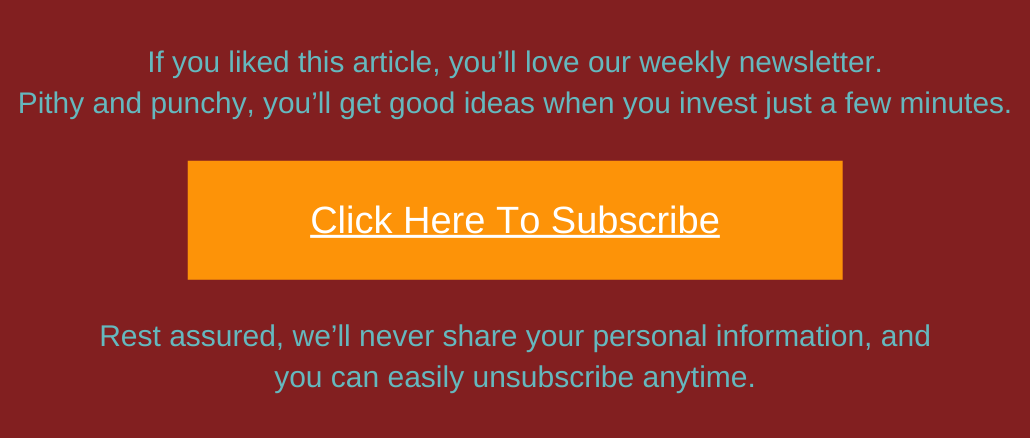Failing To See Options
Let’s start today’s newsletter with a little joke.
During a visit to the mental asylum, a visitor asked the Director how she decides whether a patient should be institutionalized.
“Well,” said the Director, “we fill up a bathtub, then we offer a
teaspoon, a teacup and a bucket to the patient and ask him or her to empty the bathtub.”“Oh, I understand,” said the visitor. “A normal person would use the
bucket because it’s bigger than the spoon or the teacup.“No.” said the Director, “A normal person would pull the plug. Do you want a bed near the window?”
This joke might offer special insight to lawyers because we so often develop tunnel vision. We may be creative when it comes to client work, ready to dream up new and inventive legal theories or approaches to help our clients achieve their goals. But when it comes to our own lives, we often fall into a rut. See if any of these statements might ring a bell with you:
- Of course, I have to be at the office from early til late; that’s how it’s always been. (If that’s your belief, how have the last couple of years shifted it?)
- Of course, I want to grow my book of business as big and as fast as possible; the end result is my only measure of success. (If that’s your belief, do you find that you’re bringing in good work or work that you regret taking on?)
- Of course, I have to speak (or network like mad, or write an article, or teach CLEs, or…); that’s how [insert a rainmaker you know] did it, and it’s obviously the way to succeed. (If that’s your belief, do you enjoy the BD task you’ve identified enough to do it regularly? Are you skilled enough to do it well?)
The truth is, there’s nothing necessarily wrong with any of those beliefs. The problem comes in when a belief becomes a rut or ignores important considerations. Building a big book of business quickly is appealing—unless it means you’re accepting any work that comes your way without evaluating whether the work or the client is a good fit for you. If you’re trying to build your book by following someone else’s plan and doing the same things they’ve done, you may find that your personality or preferences make their approach a poor fit for you, which will usually guarantee equally poor results.
There may be costs, perhaps even enormous ones, involved in making a change to your approach to practice or business development. But the highest cost of all lies in failing to see options.
If we feel stuck, without options, in an uncomfortable practice (or in a firm that isn’t a good fit, or in a BD plan that doesn’t reflect our skills and preferences), chances are good that we’ll fight for a little while but eventually give up the struggle, succumb to the familiar even if it’s uncomfortable.
If we see options, the struggle may be more intense because we’re struggling with the situation as well as the options we’ve identified, but eventually, we’ll have the ability to make a choice. The choice may demand a huge investment from us, but we avoid the impotent sense of surrender.
Choice offers power.
Sometimes the answer is both as clear and as obscure as pulling the bathtub plug when presented with the options of a bucket, teacup, or a spoon to use to empty the tub. Alternatives that may be obvious to someone standing outside the situation may be invisible to the person facing it. That’s why it’s often so valuable to talk with a colleague, a friend, a spouse or partner, or a coach or consultant who can see options that you might miss.
What challenges are you facing? What options do you have? Can you identify all of the options (including those hidden in plain view) and the results of each? That’s the moment of decision and the moment of power.





Leave a Reply
Want to join the discussion?Feel free to contribute!